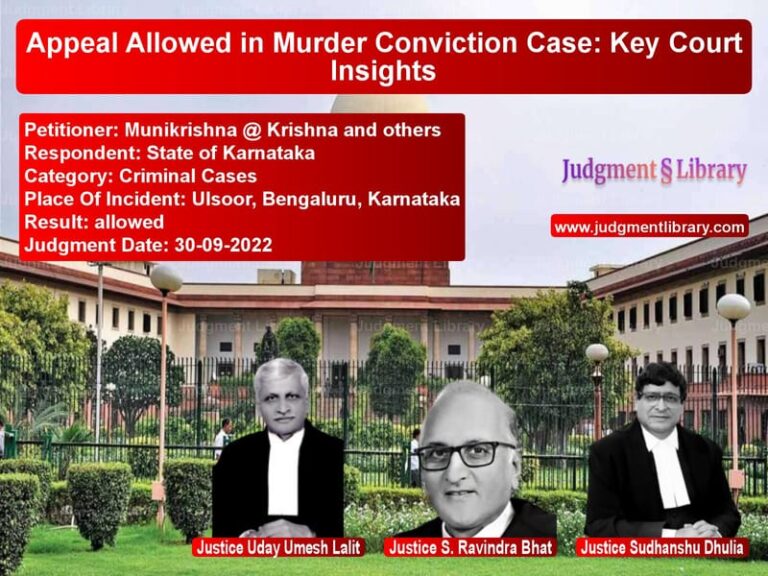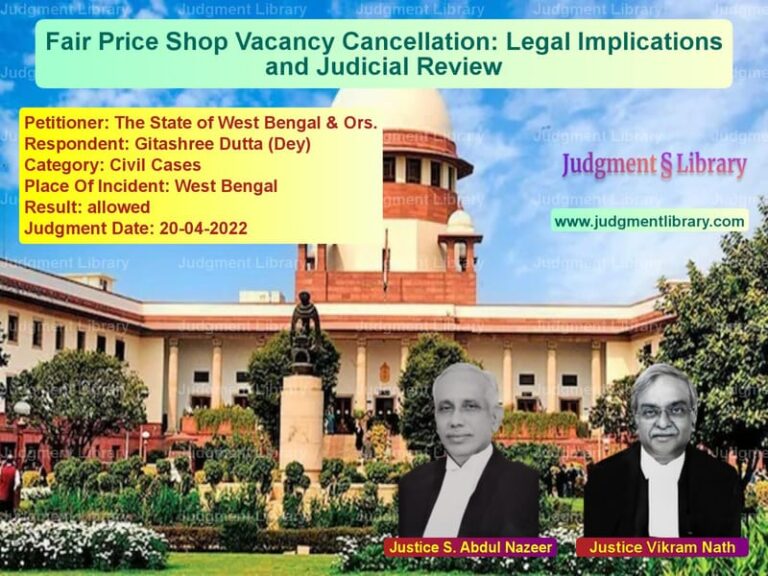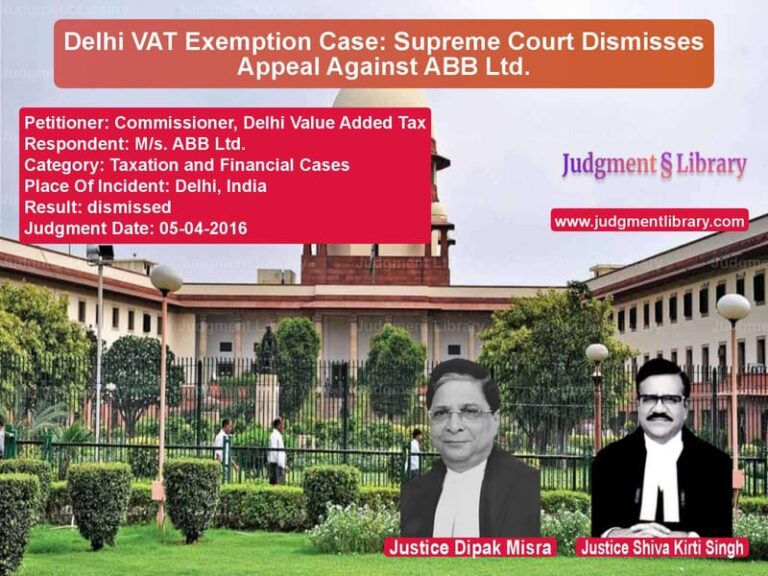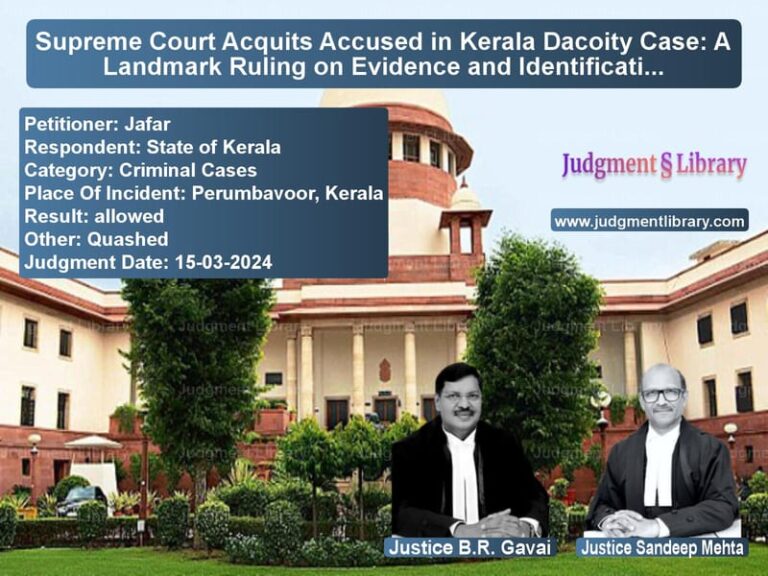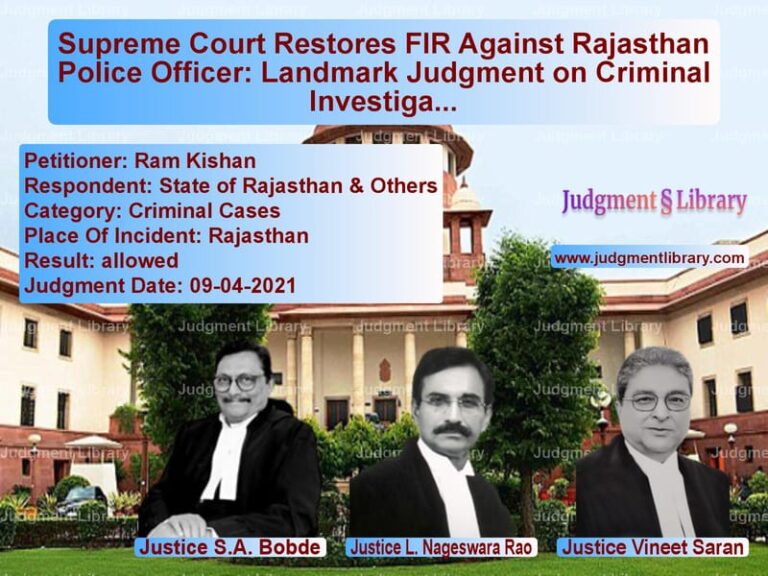Temple Jewelry Ownership Dispute Settled: Supreme Court Upholds Religious Endowment
The legal battle surrounding the ownership of 26 pieces of jewelry, some embedded with diamonds and precious stones, has been finally settled by the Supreme Court of India. The case revolved around whether the jewelry belonged to R.M. Sundaram, the adopted son of Muthuthandapani Chettiar, or if it was a religious endowment donated for the deity Sri Neelayadhakshi Amman of the Sri Kayarohanasamy and Neelayadhakshi Amman Temple in Nagapattinam, Tamil Nadu. The judgment upheld that the jewelry constituted a religious endowment and reaffirmed the temple’s right over it.
The legal battle spanned multiple decades, beginning with a suit filed by Sundaram in 1985. He sought a mandatory injunction directing the temple authorities to allow him exclusive possession and control over the Kudavarai, a secure vault within the temple premises where the disputed jewelry was kept. Sundaram claimed he had inherited these ornaments from his adoptive father, who had permitted them to be stored in the temple’s Kudavarai for safety reasons. The temple administration, however, contended that the jewelry had been dedicated to the deity over a century ago and was used exclusively for religious purposes during the annual Adipooram festival.
Petitioner’s Arguments
R.M. Sundaram, the appellant, argued that the jewelry was the personal property of his adoptive father, Muthuthandapani Chettiar, and was merely stored in the Kudavarai for safekeeping. He relied on a letter of undertaking dated October 4, 1962, which, according to him, granted his family the right to retain exclusive possession of the vault and the jewelry stored within it.
The key points of the appellant’s argument included:
- The jewelry was never donated to the temple; rather, it was stored there for safety.
- His adoptive father had granted permission to store temple jewelry in the Kudavarai temporarily, but that did not mean he relinquished ownership of his own ornaments.
- The temple administration had no right to claim ownership over the jewelry.
- The 1962 letter of undertaking explicitly allowed his family to maintain independent possession of the Kudavarai.
Respondent’s Arguments
The temple authorities countered that the jewelry was a religious endowment, having been donated by the ancestors of Muthuthandapani Chettiar. They provided evidence, including historical records and witness testimonies, to substantiate their claim that the jewelry was always intended for the deity’s adornment during the Adipooram festival.
The temple’s main arguments were:
- The disputed jewelry, referred to as ‘Abaranam,’ had been donated to the deity and was recorded in temple registers.
- It had been consistently used to decorate the idol of Sri Neelayadhakshi Amman during the annual Adipooram festival.
- The Kudavarai was not a private vault for personal storage; rather, it was an integral part of the temple meant for safekeeping temple valuables.
- The appellant’s adoptive father never sought to reclaim the jewelry during his lifetime, further proving that it was intended as an endowment.
Judicial Findings and Verdict
The Supreme Court meticulously analyzed historical records, testimonies, and the circumstances surrounding the case. The court relied heavily on the temple’s records, which listed the disputed jewelry as ‘Adipooram Ambal Thiru Abaranam’—a strong indication that it was always meant for religious use.
The judgment extensively referred to previous legal precedents on religious endowments. It cited the landmark ruling in Deoki Nandan v. Murlidhar, which held that for an endowment to be considered public, it must benefit a general body of worshippers rather than specific individuals. The court found that in this case, the jewelry was dedicated to the deity and used for public worship, establishing its status as a religious endowment.
Additionally, the court dismissed the appellant’s claim based on the principle of res judicata. The appellant had contended that a previous suit filed by the temple in 1981, seeking an inventory of the jewelry, should have barred the present case. However, the court clarified that the earlier suit did not adjudicate the ownership question, making the present suit valid.
With these findings, the Supreme Court ruled:
“It is evident that the suit jewelry was a specific endowment intended solely for religious purposes. The appellant’s claim over its ownership is unfounded and must be dismissed.”
Final Judgment and Directions
The Supreme Court’s final verdict dismissed Sundaram’s appeal and upheld the temple’s ownership of the jewelry. Additionally, the court directed:
- The appellant must return item number 14 from the suit jewelry, which was found to be missing.
- The appellant is restrained from interfering in any manner with the temple’s possession of the jewelry.
- The jewelry must continue to be used for adorning the deity during the Adipooram festival.
- The appellant must cooperate in opening the Kudavarai when required for religious ceremonies.
With this ruling, the long-standing dispute over the temple jewelry has been conclusively resolved, reaffirming the principles governing religious endowments in India.
Petitioner Name: R.M. Sundaram.Respondent Name: Sri Kayarohanasamy and Neelayadhakshi Amman Temple (Through Its Executive Officer).Judgment By: Justice Ajay Rastogi, Justice Sanjiv Khanna.Place Of Incident: Nagapattinam, Tamil Nadu.Judgment Date: 10-07-2022.
Don’t miss out on the full details! Download the complete judgment in PDF format below and gain valuable insights instantly!
Download Judgment: r.m.-sundaram-vs-sri-kayarohanasamy-a-supreme-court-of-india-judgment-dated-10-07-2022.pdf
Directly Download Judgment: Directly download this Judgment
See all petitions in Property Disputes
See all petitions in Succession and Wills
See all petitions in Damages and Compensation
See all petitions in Judgment by Ajay Rastogi
See all petitions in Judgment by Sanjiv Khanna
See all petitions in dismissed
See all petitions in supreme court of India judgments July 2022
See all petitions in 2022 judgments
See all posts in Civil Cases Category
See all allowed petitions in Civil Cases Category
See all Dismissed petitions in Civil Cases Category
See all partially allowed petitions in Civil Cases Category


